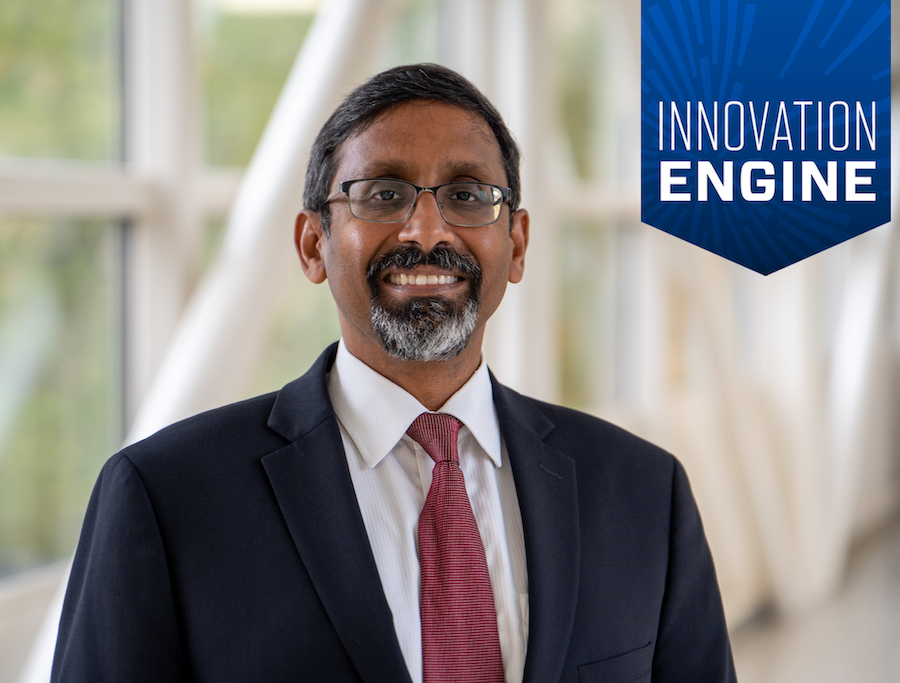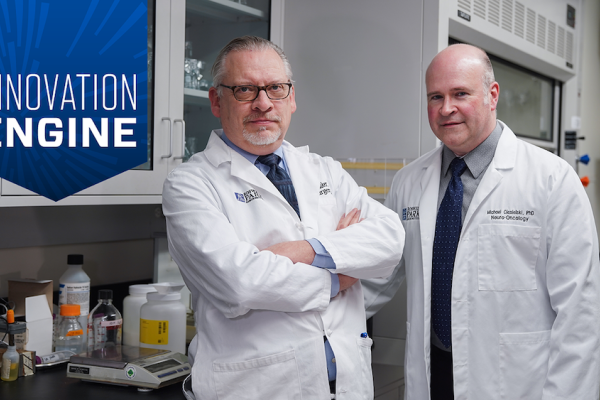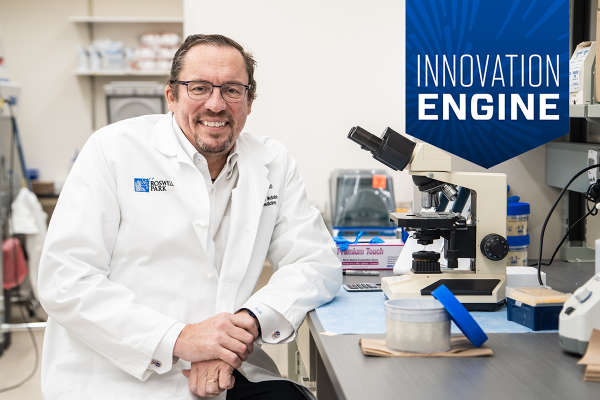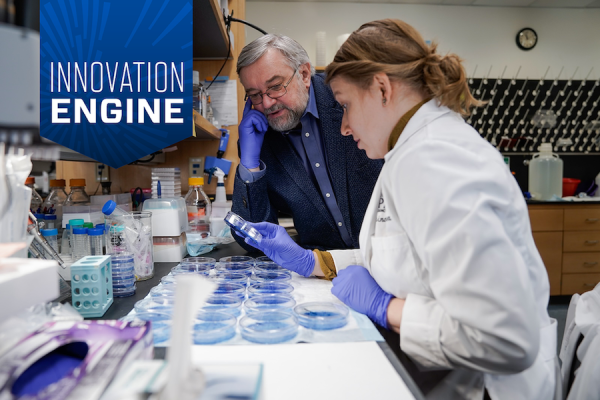The Innovation Engine series highlights high-impact Roswell Park science that advances the priorities of the National Cancer Plan — a roadmap for working together to end cancer as we know it. The work outlined in this post supports Goal #3: Develop Effective Treatments and Goal #5: Deliver Optimal Care.
If you know someone with Type 2 diabetes, there’s a good chance they take a prescription drug called metformin to lower their blood sugar. FDA-approved since 1995, it has a strong record of safety, is one of the most accessible drugs on the market, and today is used by some 20 million people in the U.S.
Research conducted at Roswell Park Comprehensive Cancer Center has revealed that metformin also appears to fight lung cancer — but only in overweight or obese patients. Further, recent findings have led investigators to wonder whether it might also have the potential to prevent lung cancer or to be combined with other therapies to treat the disease more effectively.
Over the past 20 years, researchers analyzing patient data saw evidence suggesting that metformin might slow cancer’s ability to grow and spread, but clinical trials largely failed to confirm that hypothesis. Sai Yendamuri, MD, MBA, FACS, Chief Strategy Officer and Chair of Thoracic Surgery at Roswell Park, began to explore that question with his colleagues. They suspected the drug’s anticancer benefits might be limited to a specific group of lung cancer patients — those who are overweight or obese.
Finding the patients most likely to benefit
To test that theory, using body mass index (BMI) as a guide, the team reviewed data collected from three sources: a group of both overweight/obese and normal-weight patients who underwent surgery for non-small cell lung cancer (NSCLC); a group of overweight/obese and normal-weight patients with NSCLC who received a type of immunotherapy called an immune checkpoint inhibitor; and preclinical lung cancer models. Published recently in the Journal of the National Cancer Institute, their study revealed:
- Metformin’s anticancer effects were seen only in the context of overweight/obesity.
- Overweight patients who took metformin and underwent surgery experienced longer periods during which the disease did not grow worse.
- In preclinical lung cancer models, metformin slowed tumor growth and reversed obesity-caused suppression of the immune system.
- In the same preclinical models, treatment with a combination of metformin and an immune checkpoint inhibitor called an anti-PD1 antibody therapy, which works by “releasing the brakes” on the immune system, resulted in even better tumor control — but again, only in obese models.
Drug may strengthen immune system against cancer
Joseph Barbi, PhD, Assistant Professor of Oncology in Roswell Park’s Department of Immunology and co-senior author with Dr. Yendamuri on the new study, adds that the team’s findings show that in obese or overweight patients, metformin appears to shift the balance between biological processes that suppress the immune system — preventing it from fighting cancer effectively — to those that actively kill tumors.
Dr. Barbi says he hopes this research will inspire other investigators to launch additional studies to fully explore metformin’s potential. “We believe our findings provide a rationale for testing drug combinations that could prevent or treat lung cancer more effectively in this growing pool of patients.”
Clinical trials for lung cancer patients
Participating in a clinical trial is the only way to access to the very latest drugs and treatments, oftentimes years before they would become available to other providers.
New trial to study metformin as preventive approach
Based on their findings, Drs. Yendamuri and Barbi designed a phase 2 clinical trial to see whether metformin might also help prevent lung cancer in overweight or obese people who are at high risk for the disease. Roswell Park is one of only three centers in the U.S. and Canada that offer the trial, which is funded by the National Cancer Institute. “Metformin is one of the most widely available and affordable drugs of any kind,” says Dr. Yendamuri. "If we can repurpose it to fight cancer, that’s very exciting.”





